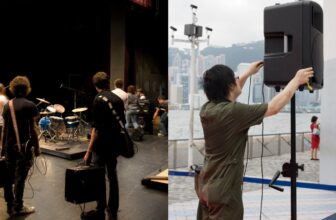The 8 Biggest Mistakes that Music Teachers Make

Being a music teacher is a tough job. There are so many aspects to balance, so many topics and techniques to be covered, and so little time to get to know your students.
It is no wonder many music teachers end up collecting a few mistakes that could harm themselves or their career, their student’s learning process, or self-esteem.
After all, we are human beings. Music teachers are not superheroes, and they carry on their shoulders the weight of their own studies, failures, and successes.
However, by knowing the most recurrent patterns, we can minimize the odds of falling into them. So, here are eight big mistakes that music teachers sometimes make (and how to avoid them).
Contents
1. Not Encouraging Students to Self-Educate and Practice
A lot of music teachers don’t give their students the autonomy to keep studying and practicing on their own. This is a huge mistake, because without developing some proper independence, both in music theory and on one’s instrument, the student won’t be able to progress as an artist.
He or she might feel demotivated and, perceiving the lack of some safe guidance, they might even decide not to practice at home.
Give your students the autonomy they deserve. Encourage them to put their personality into the studying and the practicing process, without fear of getting off the tracks.
2. Lack of Fun
Music teachers obviously love music and that’s why they take it so seriously. By taking it too seriously, though, you will surely discourage your students, especially the youngest ones, or the adult ones with a thousand more chores to carry out during their day.
Music is self-expression, so it has to be fun and, to a certain degree, instinctive.
By stressing your students with tons of exercises, criticism, or upcoming exams, you will only obtain the opposite of what you’re aiming for: they will dislike music forever!
Try to create a balance between hard work and fun. Reserve just 10 minutes of your lesson to something your student truly loves. Maybe it’s a tune which is not part of the syllabus, or a specific topic they are interested in. Give them something to look forward to before every lesson.
3. Lack of Theory and Ear Training
Some music teachers focus just on their instrument, forgetting how important it is to lay a strong theory foundation. Yes, music theory can be pretty boring, but it is also an important requirement to progress as an artist. Ear training and sight-reading are even more important, but often completely forgotten in music lessons.
You don’t need to dedicate hours and hours of your teaching time to these two subjects. Just set aside about 15 minutes for each lesson, focusing on a specific music theory topic or ear training exercise. Then ask your student to do some homework and, during the following lesson, test whether the topic is clear.
It won’t make a huge difference in your student’s schedule nor yours, but it will help him or her grow hugely as a musician.
4. Lack of Equality
It is not uncommon, especially in prestigious music schools, to see a difference in the way a teacher treats two students. One may be more naturally inclined towards the instrument, or from a wealthier family.
The other one might have a working-class background or struggle with specific tasks and topics. Nevertheless, the two students deserve the very same treatment from you.
If you constantly praise the first one and constantly criticize the latter, you’ll create a disparity that could result in a serious lack of self-esteem or, on the contrary, in a dangerous feeling of being invincible. Both harmful attitudes in the career of a musician.
Treat every student equally. No matter their abilities or background, with practice and hard work everyone can become a good musician. Allow all of your students to reach that point.
5. Lack of Organization
This point could potentially harm both your students and your career as a teacher.
When you have a music teaching business, you must be extremely organized to set up a working schedule. Don’t consider just the lessons in themselves, but also the time required for you to prepare them.
Allow yourself some time to talk to the parents too, if you teach children. Last but not least, schedule in some time for your self-promotion.
With some time management, you will improve your organization, offering more values to your students.
6. Lack of Self-promotion
If you’re fairly new to teaching, you’ll know how tough is it to find clients. The world is a jungle, the competition is crazy, and the bar is very high. With more and more learning options available also online, it is getting more difficult than ever to start out as a music teacher.
However, if you promote your business properly, you’ll have more chances to find clients.
A lot of music teachers overlook this process. Especially the employed ones think their school will do all the promotional job for them.
Well, that’s wrong! What if the school sacks you? Or what if the school you work for counts on its teachers to raise the number of clients?
Be smart and promote your teaching business as often as you can.
7. Lack of Entrepreneurial Skills
A lot of self-employed music teachers fail to realize they are entrepreneurs. They spend a lot of time practicing their instrument and their musicianship (which is obviously extremely important), but they never worry about the business side of their job.
If you’re among them, you should really start thinking about ways to optimize your business. Maybe you can think of a system to archive the lessons materials you prepared in advance? Or you can automatize the mailshots to your clients?
Working hard is great, but coming up with little systems to work smarter is often what makes a project or business very successful.
8. Lack of Self Confidence
This last point is the trickiest one to assess and resolve, but it is also the most important one.
A lot of music teachers make the seven mistakes previously described because they lack self-confidence.
Maybe they had bad teachers who would constantly criticize them, or maybe they had to face a terrible failure. As a result, they work without the tranquility and the confidence required.
If you feel this paragraph describes you, take some time to assess your feelings and then leave the past behind. You are not defined by your past, but only by the steps you’ll take today.
Conclusion
It’s a great gift to be able to teach music to eager students. Though, we’re not always perfect. We might have some habits and blind spots that are unknowingly lowering the performing of our teaching.
If you teach music, try to really consider if you’re falling into any of the traps that we’ve talked about, and actively think of ways that you can stop it from happening. It will improve the development of both you and your students!





